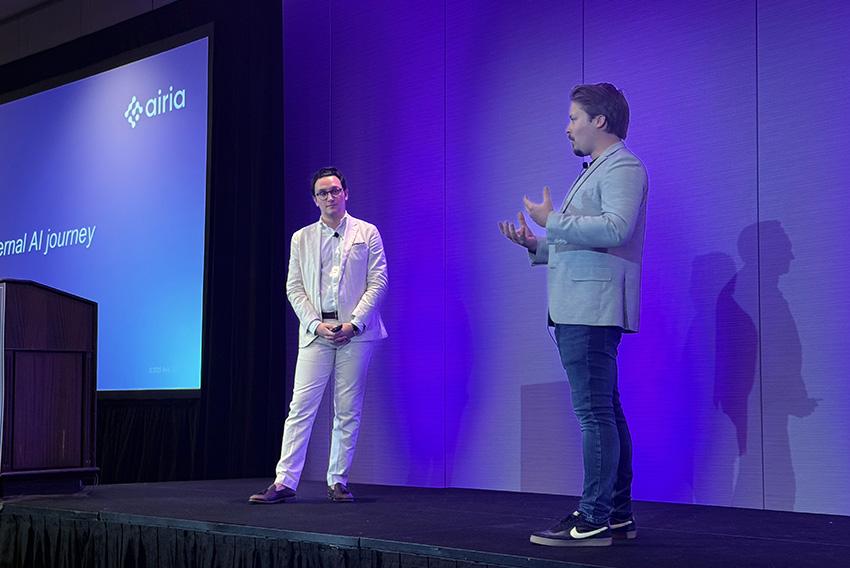Ai4 2025: Tackling the 90% Failure Rate in Enterprise AI Deployments
CIJ EUROPE rushed between discussions and skipped one to be at one of the more candid and practical talks at Ai4 2025, Alex Bermudez, GTM lead at Airia, and Ben Eichholz, Senior Director of AI Innovation at Pax8, addressed a problem that few in the AI industry are eager to admit: nearly nine out of ten enterprise proof-of-concepts (POCs) for generative AI never make it into production.
Drawing on statistics from IDC and Gartner, the speakers outlined why enterprise AI adoption often stalls after initial trials. The main culprits, they said, include pressure from leadership to deploy AI without clear operational plans, slow change management, poor AI literacy among users, and conflicts between innovation ambitions and organisational risk tolerances in areas like governance, compliance, and security.
Eichholz shared Pax8’s own journey, which began with promising AI tools like ScopePilot for Microsoft 365, designed to summarise meetings and improve content creation. While these tools boosted personal productivity, they failed to embed into core business workflows, making ROI difficult to prove. A pivot to custom AI agent development brought new challenges — projects that were too slow, lacked capabilities, or were outdated by rapid technological change. By 2024, Pax8 shifted to a platform-based strategy, partnering with Airia to stay on the leading edge while managing risk and complexity.
Bermudez noted that as enterprises scale AI deployment, new security threats — including data poisoning, untrusted inference, and vulnerabilities in the emerging Model Context Protocol (MCP) — are becoming serious concerns. Shadow AI, where employees use unauthorised tools like ChatGPT or Gemini, also remains a risk unless organisations provide sanctioned, user-friendly alternatives. At Pax8, building an “AI playground” on Airia’s platform significantly reduced this problem by giving staff secure access to leading AI models, including the latest releases such as GPT-5.
The discussion also addressed the difficulty of integrating AI with both structured and unstructured enterprise data. Eichholz cautioned against “letting perfect be the enemy of good” in data readiness, advocating for a use-case-driven approach that targets relevant data subsets rather than waiting for complete enterprise-wide clean-up.
Looking ahead, both speakers argued that the real goal for enterprises is a fully orchestrated, multi-agent system capable of reading from and writing to diverse data sources while operating within strict governance frameworks. Achieving this, they warned, requires careful platform selection, robust identity and authentication controls, and the ability to manage guardrails consistently across models.
Airia, which specialises in enterprise governance, security, and orchestration for AI agents, offers no-code prototyping, access to over 150 foundational models, and built-in observability and data-loss-prevention layers. Eichholz cited these capabilities — along with Airia’s ease of deployment and its support for democratising innovation across a workforce — as reasons for Pax8’s decision to partner rather than build entirely in-house.
With generative AI moving from hype to hard reality, Bermudez and Eichholz’s message was clear: success depends less on chasing the latest models and more on building the infrastructure, governance, and user adoption strategies that can turn AI pilots into lasting enterprise transformation.









